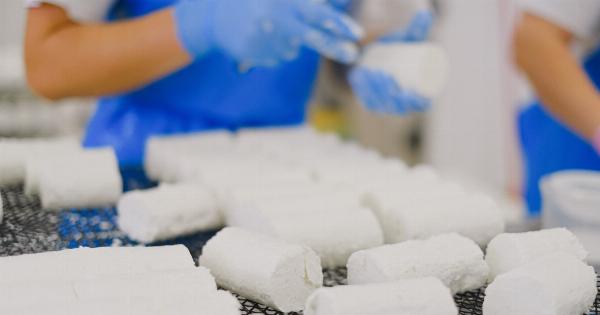Calcium is an essential mineral that plays a crucial role in maintaining the health of our bones and teeth. It is also involved in various bodily processes such as muscle function, nerve transmission, and blood clotting.
While dairy products are often considered the go-to source of calcium, individuals who are lactose intolerant or have dairy allergies need to explore alternative sources to meet their calcium needs. In this article, we will discuss some suitable alternatives for the lactose intolerant to ensure they consume adequate levels of calcium.
The Importance of Calcium
Before diving into alternative sources of calcium, it is important to understand why this mineral is vital for our overall health. Calcium is the most abundant mineral in our bodies, with approximately 99% of it being stored in our bones and teeth.
The remaining 1% is found in our blood and plays a crucial role in various bodily functions.
Calcium is particularly important for children and adolescents, as it aids in bone growth and development.
In adulthood, it helps in maintaining optimal bone health and prevents the risk of osteoporosis, a condition characterized by weak and brittle bones that are prone to fractures.
Calcium Requirements for the Lactose Intolerant
The recommended daily intake of calcium varies depending on age, sex, and life stage. The United States National Institute of Health (NIH) provides a general guideline for calcium intake as follows:.
- Children 1-3 years old: 700 milligrams (mg) per day
- Children 4-8 years old: 1,000 mg per day
- Children 9-18 years old: 1,300 mg per day
- Adults 19-50 years old: 1,000 mg per day
- Adult men 51-70 years old: 1,000 mg per day
- Adult women 51-70 years old: 1,200 mg per day
- Adults 71 years and older: 1,200 mg per day
- Pregnant and lactating women: 1,000-1,300 mg per day
It is important for lactose intolerant individuals to ensure they are meeting the recommended daily intake of calcium through alternative sources.
Lactose Intolerance Explained
Lactose intolerance is a common digestive disorder characterized by the inability to digest lactose, a sugar found in milk and dairy products. This occurs when the body does not produce enough lactase, the enzyme responsible for breaking down lactose.
Symptoms of lactose intolerance can include bloating, diarrhea, stomach cramps, and gas. It is important for individuals with lactose intolerance to find alternative sources of calcium to prevent deficiencies and maintain optimal health.
Alternative Sources of Calcium
1. Dark Leafy Greens
Dark leafy greens such as kale, spinach, collard greens, and bok choy are excellent sources of calcium. They are also rich in other essential vitamins and minerals. Incorporating these greens into your diet can help you meet your calcium needs.
2. Fortified Plant-Based Milk
Various plant-based milk alternatives, such as almond milk, soy milk, and rice milk, are often fortified with calcium and other essential nutrients. It is important to check the labels to ensure they contain adequate amounts of calcium.
3. Tofu
Tofu, made from soybeans, is an excellent source of calcium for lactose-intolerant individuals. It is also a versatile ingredient that can be added to various dishes.
4. Canned Fish with Bones
Fish such as salmon and sardines canned with their bones intact are not only a good source of calcium but also rich in omega-3 fatty acids. These can be a healthy addition to your diet.
5. Nuts and Seeds
Almonds, chia seeds, sesame seeds, and other nuts and seeds are not only a great source of calcium but also provide healthy fats and other beneficial nutrients.
6. Beans and Legumes
Beans and legumes, including chickpeas, black beans, and lentils, contain a decent amount of calcium and can be incorporated into various savory dishes.
7. Calcium-Fortified Foods
Many food products on the market are fortified with calcium to cater to individuals with lactose intolerance. These include breakfast cereals, granola bars, and even some orange juices. Check the labels to identify suitable options.
8. Calcium Supplements
If you are unable to meet your calcium requirements through dietary sources alone, calcium supplements can be considered. Consult with a healthcare professional to determine the appropriate dosage and supplement form for your needs.
9. Calcium-Rich Vegetables
In addition to dark leafy greens, there are other vegetables that contain significant amounts of calcium. Broccoli, okra, and green snap peas are examples of calcium-rich vegetables.
10. Seaweed
Seaweed and algae, such as nori and kelp, are known to be high in calcium. Adding them to your meals can boost your calcium intake.
Conclusion
Being lactose intolerant does not mean you have to miss out on meeting your calcium needs.
By incorporating alternative sources of calcium into your diet, such as dark leafy greens, fortified plant-based milk, tofu, and calcium-fortified foods, you can ensure you are getting the necessary amount of this vital mineral. Remember to assess your calcium requirements and consult with a healthcare professional to determine the most suitable options for your dietary needs.


























